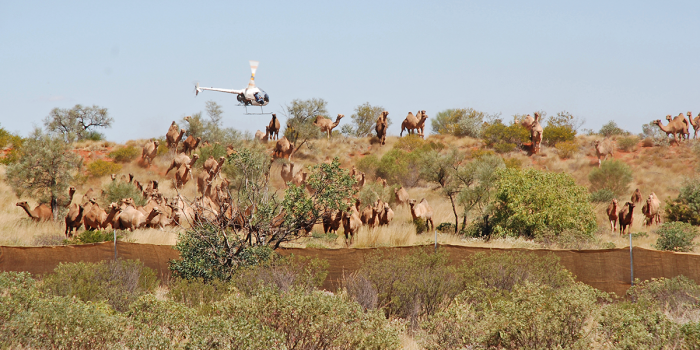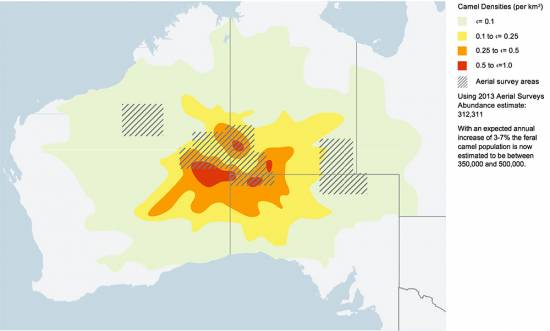
JOINT MEDIA RELEASE 10 DESERTS PROEJCT/CLC
The Central Land Council (CLC) recently completed feral camel control work in remote central Australia areas in conjunction with the 10 Deserts Project (the project).
Mr Peter Donohoe manager – land management, CLC said “Over 1000 camels and other feral animals were removed in an area covering over 27,000 sq kms area after consultation with traditional owners”.
“Being able to leverage funding for control work from the project has enabled the CLC to conduct feral camel management in the remote Katiti Petermann Indigenous Protected Area and Haasts Bluff area of central Australia”, Mr Donohoe stated.
“The Indigenous land owners have been proactive in wanting to manage this problem on their lands as it deeply impacts on their natural and cultural assets. We will continue to work collaboratively with the 10 Deserts Project and the Northern Territory government to continue this important control work”, he continued.
The project is working in collaboration with CLC, Indigenous project partners and key stakeholders to fund and implement control work. This work is complex and requires the consent of traditional owners and the cooperation of land managers, and the Northern Territory, South Australian and Western Australian governments.
Mr Peter See, general manager 10 Deserts Project said, “The 10 Deserts Project is committed to supporting Indigenous organisations that want to manage feral camels on their country and we have allocated nearly $2 million over the coming four years for control work”.
“On past experience feral camels do enormous damage to native flora and fauna, and cultural sites particularly waterholes. When conditions are harsh, they move into remote communities looking for water and do significant damage to infrastructure and houses”, he continued.
Feral camels roam across 3.3 million square kilometres of Australia’s rangeland. This incorporates a range of different land tenures including Aboriginal Lands, pastoral and mining leases, conservation lands and Crown Land.
With the consent of traditional owners, the project completed its first camel control work with the CLC. Although the number of feral camels culled was relatively low it is expected that this figure will increase in future control work.

“Feral camels don’t worry about state or territory borders, fences or boundaries; the problem is truly a national issue. Because of the cross-jurisdictional nature of the issue the most effective way to deal with it is to collaborate. The aim is to remove as many feral camels from the landscape as quickly as possible”, Mr See said.
The 10 Deserts Project is led by Desert Support Services and aims to build the capacity of Indigenous groups to look after country for a range of economic, social, cultural and environmental outcomes.
For media enquiries:
10 Deserts Project: Shelley Doyle | M: 0477 222 117 | E: media@dss.org.au
